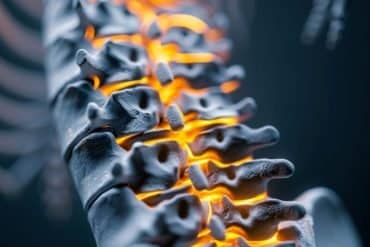Summary: Researchers will present findings about the neural mechanisms behind some social behaviors, ranging from aggression to social decision making.
Source: SfN.
Humans, primates, and many other animals are innately social, spending much of their lifetimes in the presence of other individuals, but little is known about the neural mechanisms that generate social behaviors. Recent advances offer insight into neural circuits and mechanisms that underlie social decision-making, cooperation, and aggression. The studies are being presented at Neuroscience 2017, the annual meeting of the Society for Neuroscience and the world’s largest source of emerging news about brain science and health.
The neurobiology of social behaviors can be challenging to study partly due to the difficulty of recording brain activity in behaving animals. Advances in the design and durability of devices for recording brain activity have now enabled the targeted study of discrete brain structures during social behaviors, revealing the activation of a wide array of neural circuits during social interactions with other individuals.
Today’s new findings show that:
- Stimulation of the CA2 region of the hippocampus, the brain’s memory center, may drive aggression in mice, suggesting a means whereby social memory can control social aggression.
- Neuronal activity in the primate amygdala can predict choices made by a partner, suggesting the brain area plays a role in observational learning and social decision-making.
- Primate brain activity during a cooperative game implicates strategic thinking rather than empathy in social decision-making.
- Neural activity in the primary motor cortices of two monkeys can become highly synchronized during a social task, carrying information about the task as well as the proximity of the two animals.

“In the past, studies focused on brain lesions or pharmacological manipulations that affected an animal with respect to its social interaction toward others,” said press conference moderator Robert Greene, a professor in the departments of Neuroscience and Psychiatry at the University of Texas Southwestern Medical Center. “We now see evidence of shared and interactive neuronal activity between social partners that extends to such things as cooperative behavior and learning and decision-making.”
Funding: This research was supported by national funding agencies such as the National Institutes of Health, as well as other public, private, and philanthropic organizations worldwide. Find out more about the neuroscience of social behavior on BrainFacts.org.
Source: Donna Ramirez – SfN
Publisher: Organized by NeuroscienceNews.com.
Image Source: NeuroscienceNews.com image is in the public domain.
Original Research: The study will be presented at Neuroscience 2017.
[cbtabs][cbtab title=”MLA”]SfN “The Neural Mechanisms Behind Social Decision Making, Cooperation and Aggression.” NeuroscienceNews. NeuroscienceNews, 13 November 2017.
<https://neurosciencenews.com/decision-making-aggression-7932/>.[/cbtab][cbtab title=”APA”]SfN (2017, November 13). The Neural Mechanisms Behind Social Decision Making, Cooperation and Aggression. NeuroscienceNews. Retrieved November 13, 2017 from https://neurosciencenews.com/decision-making-aggression-7932/[/cbtab][cbtab title=”Chicago”]SfN “The Neural Mechanisms Behind Social Decision Making, Cooperation and Aggression.” https://neurosciencenews.com/decision-making-aggression-7932/ (accessed November 13, 2017).[/cbtab][/cbtabs]






